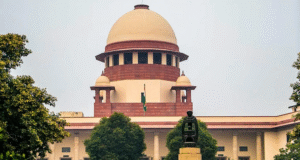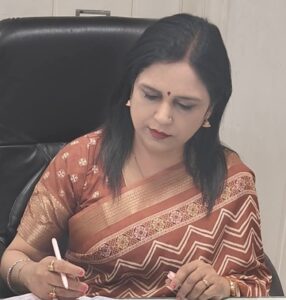India’s constitutional landscape is witnessing a critical face-off between the executive and judiciary. In a significant development, President Droupadi Murmu has invoked Article 143 of the Constitution to seek the Supreme Court’s advisory opinion on 14 legal questions. These pertain to the extent of judicial authority in matters traditionally under executive control—specifically, the powers of the President and Governors in granting assent to state legislation.
At the heart of this debate lies the Supreme Court’s April 8 verdict in the Tamil Nadu Governor case. The apex court, citing Article 142—its power to do “complete justice”—imposed a deadline for the President and Governor to act on ten pending bills passed by the Tamil Nadu Assembly. The bills had seen substantial delay in receiving the assent of the Governor and subsequently, the President. The court ruled that under Article 201, a decision on such bills must be made within three months. It further criticized the prolonged inaction by the Tamil Nadu Governor, stating that the President does not enjoy a “pocket veto” and must act within a reasonable timeframe.
However, this ruling has stirred a constitutional storm. President Murmu has raised fundamental questions: Can the Supreme Court impose a timeline on the President or Governors when the Constitution itself does not prescribe one? Can the judiciary’s extraordinary powers under Article 142 override executive discretion enshrined in the Constitution?
Among the 14 questions posed, some key concerns include whether the Supreme Court can substitute the constitutional powers of the President or Governor with its own, whether states are misusing the court’s plenary powers against the Centre, and whether the Governor’s decisions under Article 200 are subject to judicial review.
Adding to the friction, the Centre has described the Supreme Court’s ruling as a case of “clear overreach” and requested the formation of a Constitution Bench to clarify the limits of judicial authority in such matters. Vice President Jagdeep Dhankhar also echoed these sentiments, warning that compelling the President to act within a judicially mandated deadline threatens the delicate balance of India’s democratic framework. “We never bargained for democracy for this day,” he remarked, calling it an “unprecedented” situation.
As newly appointed Chief Justice of India D.Y. Chandrachud’s successor, CJI B.R. Gavai now faces a defining constitutional challenge—navigating the judiciary’s role without trespassing into executive territory. The outcome of this standoff could recalibrate the power dynamic among India’s three pillars of democracy.







